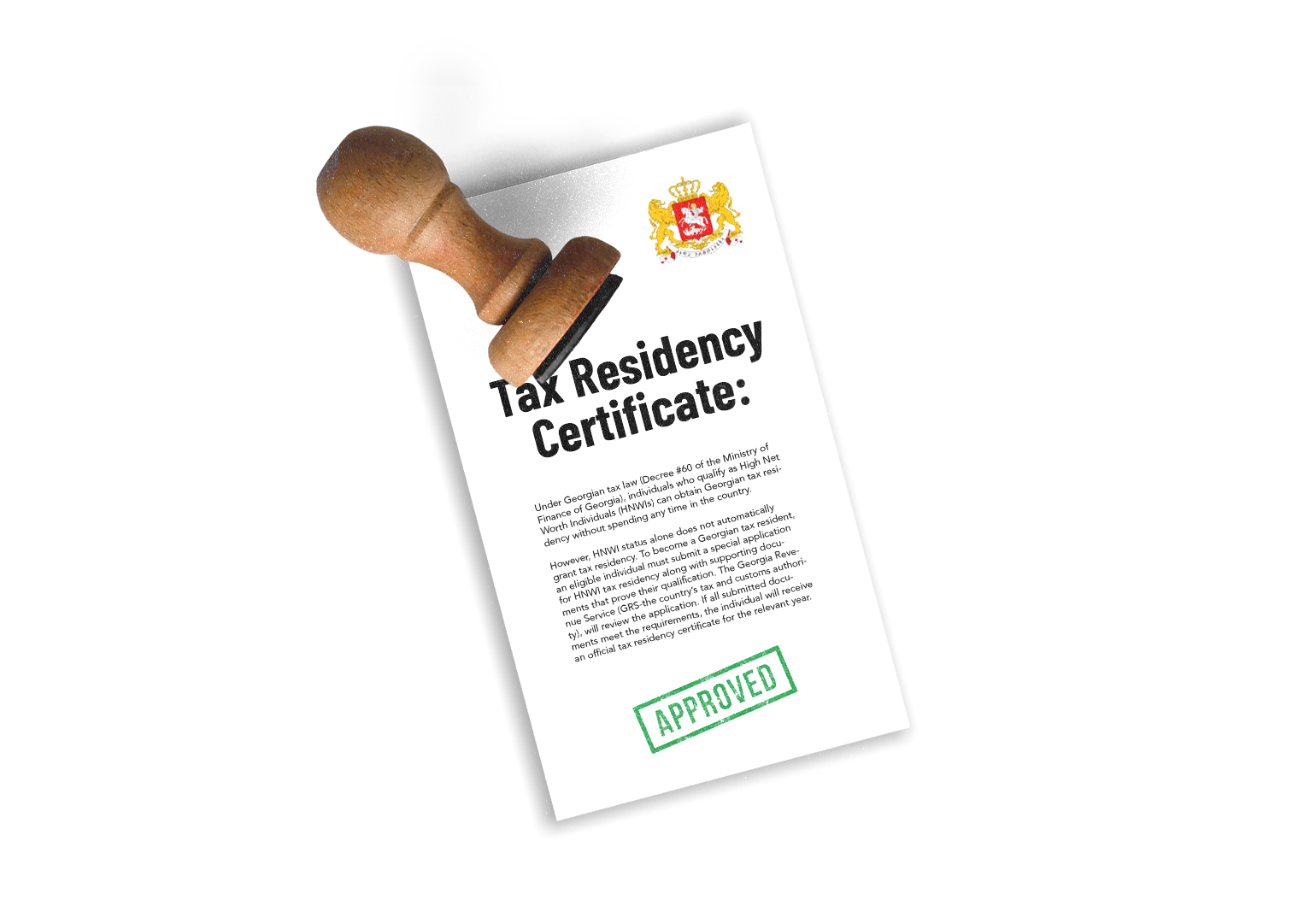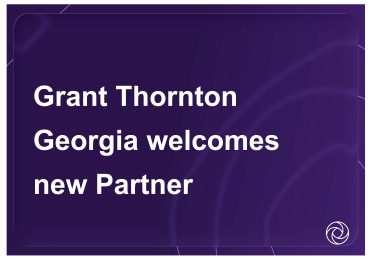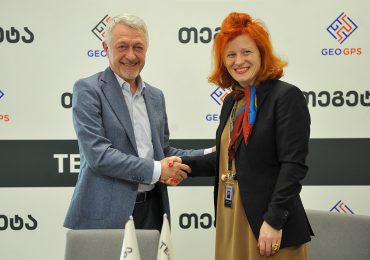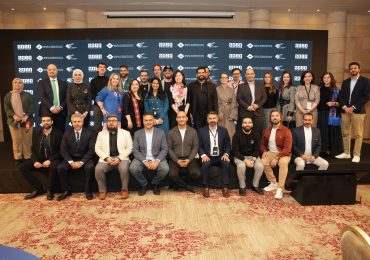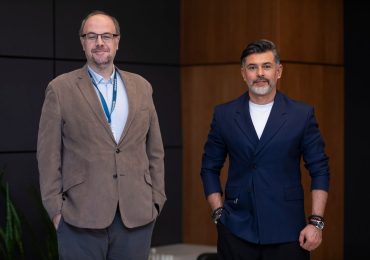Forbes Blog is a non-editorial category created by individuals with diverse interests and ideas. The texts published within this category represent the views of the authors and may not reflect the position of Forbes Georgia’s editorial team.
Tax Residency Rule in Georgia for High Net Worth Individuals
Under Georgian tax law (Decree #60 of the Ministry of Finance of Georgia), individuals who qualify as High Net Worth Individuals (HNWIs) can obtain Georgian tax residency without spending any time in the country.
However, HNWI status alone does not automatically grant tax residency. To become a Georgian tax resident, an eligible individual must submit a special application for HNWI tax residency along with supporting documents that prove their qualification. The Georgia Revenue Service (GRS-the country’s tax and customs authority), will review the application. If all submitted documents meet the requirements, the individual will receive an official tax residency certificate for the relevant year.
Criteria for HNWI Tax Residency in Georgia
Under current Georgian legislation, an individual must meet three key criteria to qualify as a High Net Worth Individual (HNWI) for tax residency purposes. Two of these criteria offer alternative conditions, meaning that satisfying either alternative is sufficient. Below is a detailed breakdown:
1. Worldwide asset/worldwide income criterion for Georgian HNWI program
An individual must either:
Own assets worth at least 3 million GEL (approx. 1.1 million USD) worldwide, OR
Have received an annual income of at least 200,000 GEL (approx. 73000 USD) in each of the last three years (the source of income is not a determining factor).
2. Georgian asset criterion for Georgian HNWI program
Own assets worth at least 500,000 USD in Georgia (this criterion has no alternative).
3. Residence permit/citizenship or Local Income criterion for Georgian HNWI program
An individual must either:
Hold a Georgian residence permit (or Georgian citizenship), OR
Have earned at least 25,000 GEL (approx. 9000 USD) from a Georgian source in the last year before applying.
Georgian HNWI Tax Residency Qualification Combinations
To qualify as an HNWI tax resident of Georgia, an individual must meet one of the following combinations of criteria:
- Own at least 3 million GEL assets worldwide + Hold a Georgian residence permit (or citizenship) + Own at least 500,000 USD assets in Georgia.
- Own at least 3 million GEL assets worldwide + Earn at least 25,000 GEL in Georgian-source income in the last year + Own at least 500,000 USD assets in Georgia.
- Earn at least 200,000 GEL annually in each of the last three years + Hold a Georgian residence permit (or citizenship) + Own at least 500,000 USD assets in Georgia.
- Earn at least 200,000 GEL annually in each of the last three years + Earn at least 25,000 GEL in Georgian-source income in the last year + Own at least 500,000 USD assets in Georgia.
By meeting any of above combinations, an individual can establish HNWI tax residency in Georgia, unlocking various tax benefits and financial opportunities.
Author’s Advice for High Net Worth Individuals Seeking a Tax Residency Certificate in Georgia
If you do not have a Georgian residence permit or have not earned at least 25,000 GEL from a Georgian source, don’t be discouraged. These requirements can be met with legitimate financial and residency planning well in advance. The key criteria to focus on are:
- Owning at least 500,000 USD in Georgian assets AND
- A total of at least 3 million GEL in worldwide assets (including the 500,000 USD in Georgia), OR
- Earning a minimum of 200,000 GEL per year in each of the last three years.
Additionally, the 25,000 GEL Georgian-source income must be received in the year before applying. For example, if you plan to apply for HNWI tax residency in 2026, you must have earned this income in 2025. Otherwise, your only alternative would be obtaining a Georgian residence permit (assuming you are not a Georgian citizen), which involves more procedures than meeting the income requirement.
To ensure a smooth process, it is strongly recommended to plan at least several months in advance. Ideally, you should start preparing the HNWI application the year before you apply (e.g., in 2025 for a 2026 certificate). However, this doesn’t mean that obtaining an HNWI tax residency certificate in a shorter timeframe is impossible—it simply requires a more complex and less predictable process.
Georgian HNWI Tax Residency Certificate Application Process
Before starting the process of obtaining HNWI tax residency in Georgia, it is highly recommended to consult with an experienced tax advisor. This ensures that:
- You already meet—or can meet—all the criteria for HNWI status (as outlined above).
- Obtaining an HNWI tax residency certificate will provide actual benefits for your situation.
- Your HNWI tax residency status will not create potential tax risks in Georgia.
- You have sufficient time to complete the HNWI tax residency process within the relevant tax year.
- Any additional considerations specific to your case are properly addressed.
A qualified tax consultant such as the author of this article will guide you through the process, ensuring compliance and maximizing benefits. If, after consultation, you are found to qualify for and benefit from the HNWI program, the consultant will provide a detailed action plan and a timeline for the entire application process.
Examples of the 3 Million GEL Asset Criterion for the Georgian HNWI Program
As mentioned earlier, the 3 million GEL asset requirement is not linked to Georgia—assets can be located anywhere in the world, provided their ownership and valuation can be properly documented. Below are examples of assets which may qualify under this criterion (non-exhaustive list):
- Real estate
- Stocks
- Bonds or any other securities
- Bank deposits or funds in an account
- Cryptocurrencies
- Movable assets (e.g., luxury vehicles, yachts, art collections)
- Shares in a private company
- A combination of any of the above asset types
The 500,000 USD Georgian asset requirement also counts toward the 3 million GEL asset criterion. However, the 3 million GEL asset requirement itself does not have to be linked to Georgia—these assets can be held anywhere. For example, if an applicant owns 500,000 USD in Georgian assets, this amount can be included as part of the 3 million GEL total, meaning they would only need to demonstrate ownership of additional assets worth the remaining balance (which can be held anywhere globally).
The required proof of ownership depends on the asset type and location. However, Georgian law does not specify exact documentation requirements—these are determined by established practices. Therefore, consulting an experienced tax advisor is highly recommended to ensure compliance.
Examples of the 500,000 USD Georgian Asset Criterion for the HNWI Program
Since the 500,000 USD Georgian asset requirement is a more recent addition, the Georgian Revenue Service has yet to fully standardize its approach to documentation. However, some clear asset categories qualify under this criterion:
- Real estate in Georgia
- Shares in a Georgian company
- Movable assets located in Georgia
- Georgian government’s bonds
- Bonds issued by Georgian companies
- Bank deposits or funds in a Georgian bank account
- A combination of the above assets
As already said above, meeting the 500,000 USD Georgian asset requirement also contributes toward the 3 million GEL asset threshold. Therefore, applicants who already meet this criterion will need to prove ownership of only the remaining required assets (approx. 600 000 USD equivalent), which can be held anywhere in the world.
Why Is HNWI Tax Residency in Georgia Beneficial?
HNWI tax residency in Georgia is particularly advantageous for individuals who are not considered tax residents in any other country—such as those who spend only a few weeks/ couple of months per year in various locations without exceeding tax residency thresholds elsewhere.
In such cases, securing tax residency in a cooperative jurisdiction like Georgia can provide significant benefits, including compliance for banking purposes and serving as proof of tax residency for foreign tax authorities. One of the key advantages of Georgia’s HNWI program is that the country does not tax foreign-sourced income for individuals. (You can read the author’s article on the definition of foreign-sourced income for Georgian tax purposes HERE.)
However, obtaining a Georgian HNWI tax residency certificate may not be beneficial if you are already classified as a tax resident in another country (or multiple countries) under their local tax laws—such as by spending more than six months there and/or maintaining a permanent home. Simply holding a Georgian HNWI tax residency certificate does not automatically override tax residency obligations in other jurisdictions, even under double taxation agreements.
Because tax residency rules are complex and vary by jurisdiction, it is crucial to consult with a tax expert to assess whether Georgia’s HNWI tax residency aligns with your personal tax strategy. Before starting the application process, ensure that obtaining the Georgian HNWI tax residency certificate will genuinely serve your financial and legal interests.
HNWI Tax Residency in Georgia: Why Local Expertise Matters
Applying for HNWI tax residency in Georgia requires careful navigation of a process where many critical details are not explicitly defined by law but are instead shaped by established practice. For example, only practice—not legislation—determines what types of proof of assets or income the Georgian Revenue Service (GRS) will accept. Additionally, some cases may involve unique circumstances where no clear precedent exists, making proper preparation even more important.
Given these complexities, working with local Georgian professionals experienced in handling HNWI tax residency applications can be highly beneficial. A knowledgeable service provider can assess the specifics of a case, anticipate potential challenges, and ensure that the submitted documentation aligns with the expectations of the authorities. This is particularly crucial for applicants whose financial profile or asset structure may not fit standard patterns.
A properly structured application greatly improves the chances of approval, highlighting the importance of specialized knowledge in navigating Georgia’s HNWI residency process.
Ordinary Rule of Tax Residency in Georgia
If you do not meet the criteria for the High Net Worth Individual (HNWI) tax residency program but still need to become a Georgian tax resident, you must qualify under the ordinary tax residency rule. This requires spending at least 183 days within any 12-month consecutive period in Georgia.
Additionally, if a Georgian citizen is not a tax resident of any other country, they can apply for a Georgian tax residency certificate from the GRS without meeting either the 183-day requirement or the HNWI tax residency criteria.
HNWI Program in Georgia: Obtain Tax Residency Without Spending a Single Day in the Country
The HNWI tax residency program in Georgia allows eligible individuals to become tax residents without meeting the 183-day rule—or even without spending a single day in the country. If this program is advantageous for you and you meet or can meet one of the four combinations of qualifying criteria, you must submit an application to the Georgian Revenue Service for HNWI tax residency certification for a specific tax year.
Once GRS approves your application, they will issue a Georgian tax residency certificate. However, before applying, it is strongly recommended to plan ahead—ideally from the previous year—and carefully assess the following:
- Confirm the benefits: Ensure that HNWI tax residency aligns with your financial goals and tax strategy. Misconceptions about its advantages are common.
- Evaluate potential tax risks: Verify that obtaining the HNWI tax residency certificate will not create unexpected tax liabilities in Georgia or other jurisdictions.
- Meet all preconditions: Ensure that you can satisfy the program’s requirements on time to avoid delays or complications.
By preparing in advance, you can maximize the benefits of Georgian tax residency under the HNWI program while minimizing potential risks.
About the Author:
The author of this article is Gela Barshovi, a Georgian and international tax consultant, and founder of TPsolution LLC, a Georgian accounting and consulting firm. Gela specializes in taxation matters related to non-residents, foreigners, and foreign-owned companies in Georgia, including assistance with the High-Net-Worth Individual (HNWI) tax residency program.

